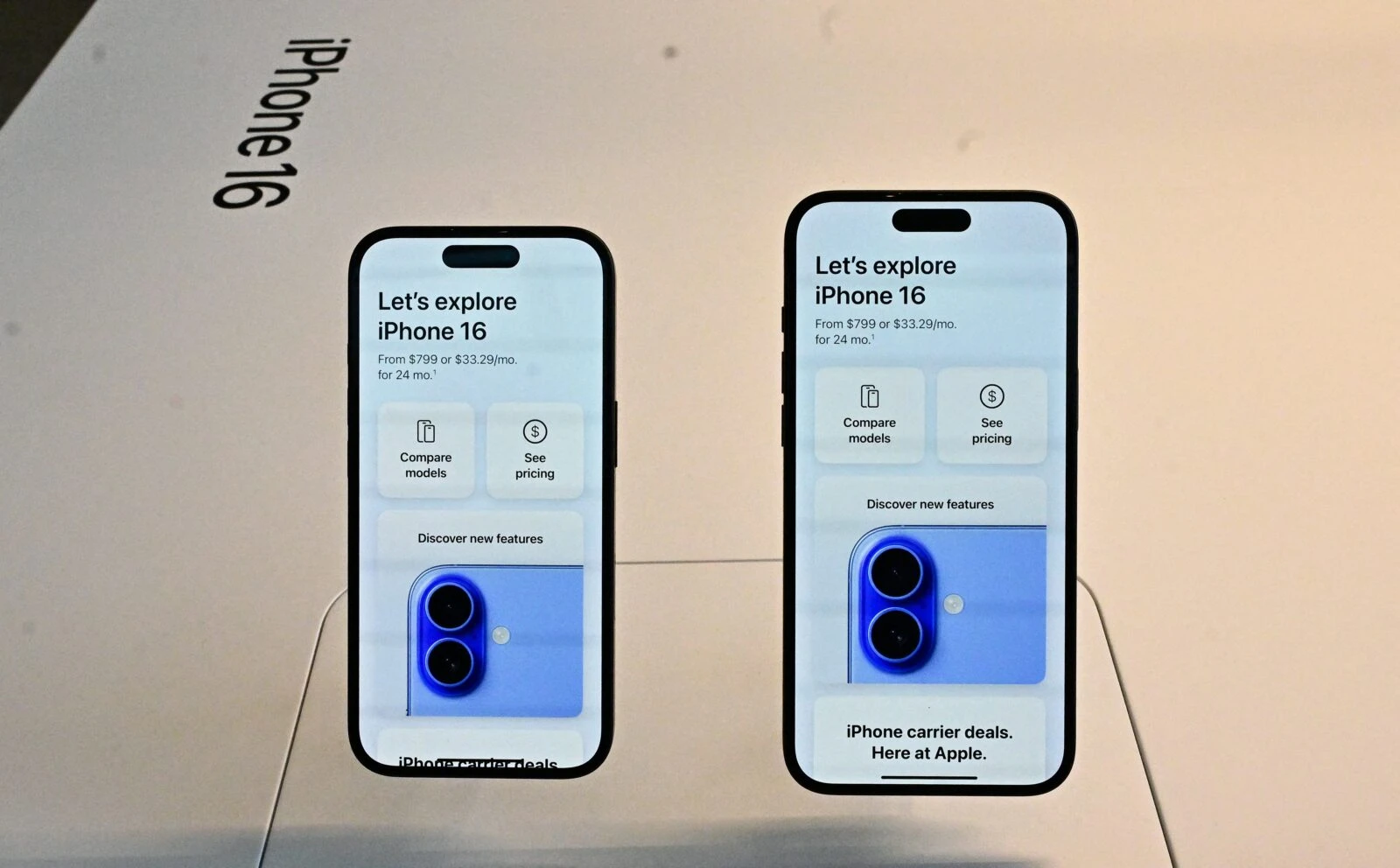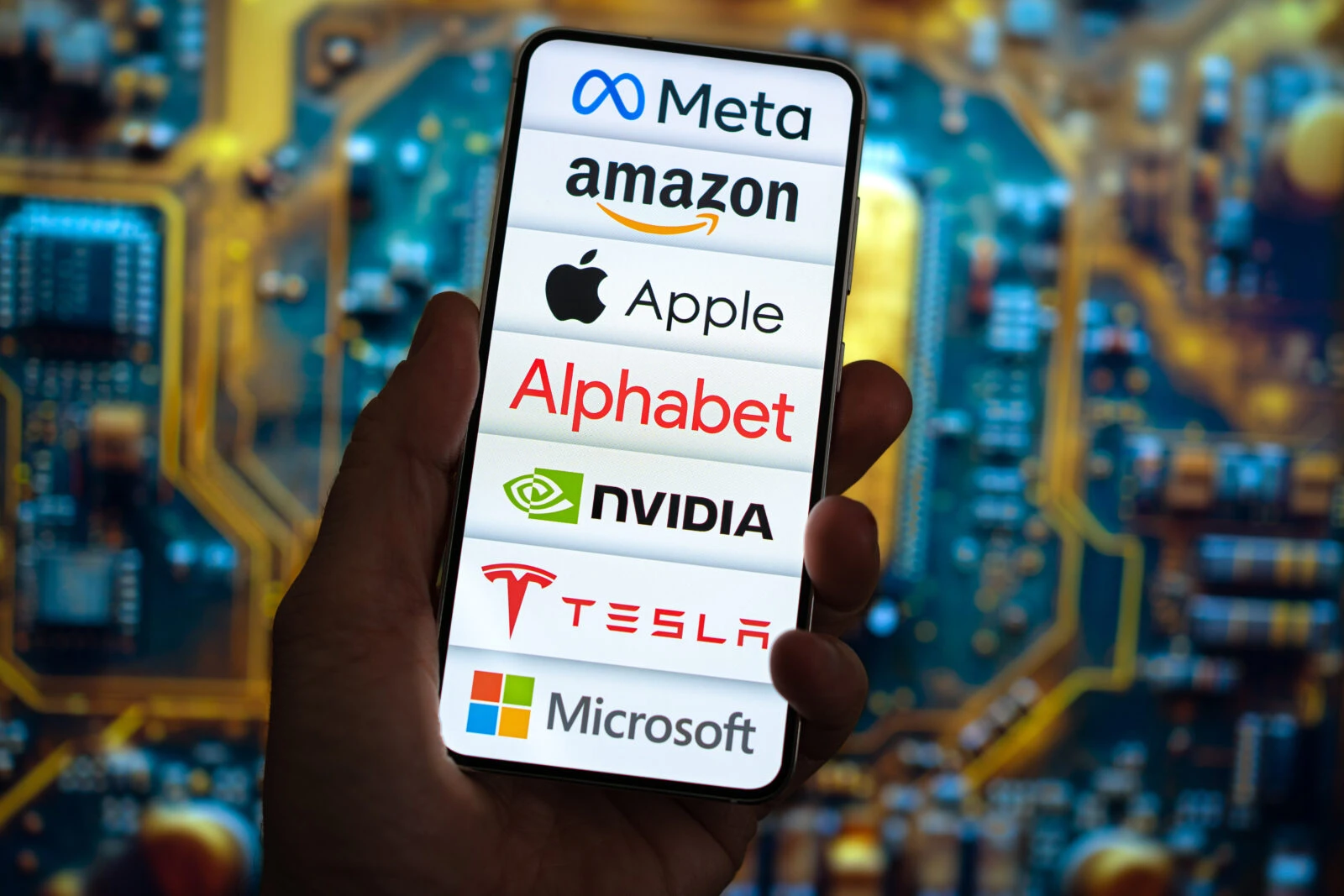First rollback on Trump tariffs: Struggling tech sector granted exemptions
 Apple iPhone 16 are on display during the launch at the Apple Store in New York, on September 20, 2024. (AFP Photo)
Apple iPhone 16 are on display during the launch at the Apple Store in New York, on September 20, 2024. (AFP Photo)
As the first sign of compromise in the ongoing trade tensions, certain U.S.-branded technology products—such as smartphones, computers, and semiconductors—have been exempted from the broad tariffs imposed under President Donald Trump’s trade policy, offering relief to a sector facing significant strain.
According to a regulation issued Friday by U.S. Customs and Border Protection, under the Department of Homeland Security, products such as computers, smartphones, chips, chip manufacturing equipment, processors, modems, and solar panels will be exempt from the additional duties.
This exemption applies to imports or goods withdrawn from bonded warehouses starting April 5.
President Trump stated on Saturday that he would provide a “very specific” update regarding potential tariffs on semiconductors by Monday. His statement followed the implementation of 125% retaliatory tariffs on U.S. goods by China that same day, signaling Beijing’s firm stance against its largest trading partner.
The exemption is expected to benefit major American tech companies such as Nvidia, Dell, and Apple, which manufacture iPhones and other high-end products in China. It also partially reduces the blow of the sweeping 145% tariffs the Trump administration has placed on Chinese imports this year.

Foxconn, Apple’s Taiwan-based assembler of Mac computers and iPads, has halted shipments from its Chengdu plant to the U.S., business-focused Nikkei reported on Saturday. Around 30–40% of the plant’s output targets the U.S. market, prompting reduced operations.
Apple is expected to gradually shift imports from countries like India, Nikkei’s report said. Meanwhile, HP has outsourced its Chongqing-based PC production to firms like Taiwan’s Quanta Computer. A manager at one contract manufacturer said exports to North America were halted in April and are likely to remain suspended for an extended period.
Since April 2, when President Trump announced the reciprocal tariffs, Apple stocks have lost approximately 20% of their market value, erasing nearly $640 billion in market capitalization.
Other tech giants within the “Magnificent 7,” including electric vehicle manufacturer Tesla and semiconductor leader Nvidia, also suffered heavy losses. Combined, these companies have seen a staggering $1.8 trillion wiped from their total market value during the same period.

On-shoring pressure persists
Despite the exemptions, U.S. Customs data cited by RAND Corporation senior researcher Gerard DiPippo indicates that the excluded items account for over 20% of Chinese imports to the U.S. Still, semiconductors, though temporarily exempt, could later be subject to sector-specific tariffs that Trump has hinted at applying to imports from all countries.
Commenting on the exemptions, White House Press Secretary Karoline Leavitt stressed that companies like Apple and Nvidia are “still hustling to onshore their manufacturing in the United States” as quickly as possible.
However, many analysts argue that boosting domestic production will take years. New York University economist Nouriel Roubini commented on X (formerly Twitter) that tariffs on lower-value goods remain in place and that the exemptions “will not reshore iPhones or tech goods, nor will they bring back cheap goods we neither can nor will produce domestically.”
He further criticized the administration’s trade strategy as “contradictory, dissonant, inconsistent, and incoherent… taken by the seat of the pants.”



